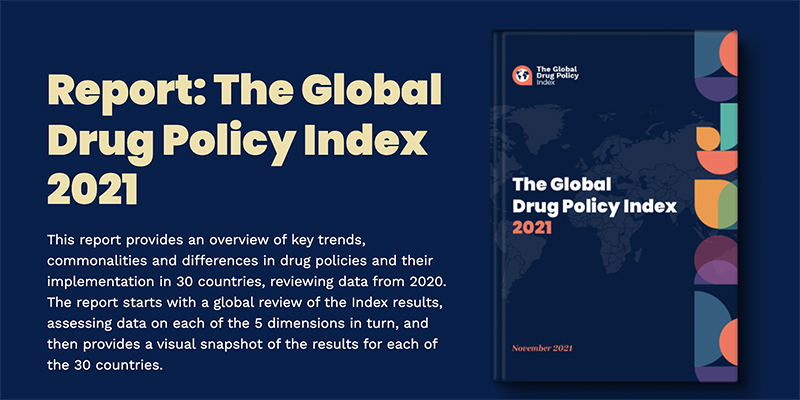Australia ranks relatively highly in a new global index that measures national drug policies against defined United Nations principles. But that ranking flatters Australia's efforts when it comes to its harm reduction efforts.
Australia has been ranked 5th out of 30 countries by the Global Policy Index, a new tool that offers the first-ever data-driven global analysis of drug policies and their implementation.
It’s not a bad result on face value. But it does prompt serious questions when Afghanistan, which still has the death penalty for drug-related crimes, was ranked at number 14.
The result also raises the prospect that Australia could have improved on its ranking if only it performed better on the key metric of harm reduction.
How did Australia fair?
The Global Policy Index measures and compares countries according to how much their drug policies and their implementation align with the UN principles of human rights, health and development.
Australia scored a total of 65/100, compared to Norway, which scored 74/100, and against a median score of 48/100.
However, in the area of harm reduction, one of five key dimensions used to score countries, Australia found itself out of the top five with the finding that it has only ‘moderately adequate’ funding measures in place. The five countries judged to have ‘adequate’ levels of investment in harm reduction were Canada, New Zealand, Norway, Portugal and the UK.
AIVL CEO Jake Docker said that the result indicates Australia has more work to do to make life-saving harm reduction services available.
“The Global Index shows Australia has the foundations in place to support harm reduction, but we need to up our game when it comes to implementation,” Docker said.
“Part of that implementation is having bigger emphasis on the role that peer-to-peer intervention has to play in reducing drug-related harm.
“The primary source of funding received by Australia’s peer-based drug user organisations sits in the Blood Born Viruses/Sexually transmitted infection space. This is unfortunate and limits acknowledgement around drug-related harm sitting outside of BBV/STIs,” he said.
“One of the key components of harm reduction is peer support and intervention. It seems Australia needs to get more serious about acknowledging this.”

The first of its kind
The Global Policy Index has been created by the Harm Reduction Consortium, a group of 192 civil society and community organisations led by the International Drug Policy Consortium (IDPC) and in partnership with academic entities.
Helen Clark, Chair of the Global Commission on Drug Policy and former Prime Minister of New Zealand, said the new Index was important because it seeks to capture drug policies in their implementation, rather than looking at what is on paper.
She described the Index as a ‘radical innovation’ with the power to promote a more humane response to drug policy.
The Index uses 75 indicators across five broad dimensions of drug policy, comprising the absence of extreme sentencing, the proportionality of the response by the criminal justice system, access to controlled medicines, harm reduction and development.
Report limitations
This first iteration of the Index is not without its limitations, a fact acknowledged by Ann Fordham, executive director of the IDPC, who said the Index was a proof of concept with room for expansion.
Only 30 countries were evaluated in the report, with a number of notable countries not represented, among them the United States, France, Germany and Spain. It’s expected that the number of participants will increase in future.
The report has also had its fair share of detractors, with one calling out the report for focusing on policy towards illegal drugs only.
Keith Humphreys, Professor of Psychiatry at Stanford University (Stanford, US) and Chair of the Stanford–Lancet Commission on the North American Opioid Crisis, said the report constituted a “significant public health failure” because it ignores policy towards legal drugs, focusing instead solely on drugs that cause a small proportion of global mortality.
Main findings of the Global Drug Policy Index
- Norway was ranked first with a score of 74/100 (Australia 65/100 – Fifth)
- The predominance of drug policies based on repression and punitive and stigmatising drug laws led to low scores overall.
- Global drug policies are defined by inequality, with the top-ranking five countries scoring three times as much as the lowest-ranking five countries.
- Drug policies disproportionately affect people who are marginalised on the basis of their gender, ethnicity, sexual orientation and socio-economic status.
- With a few exceptions, the meaningful participation of civil society and affected communities in drug policy processes remains severely limited.

